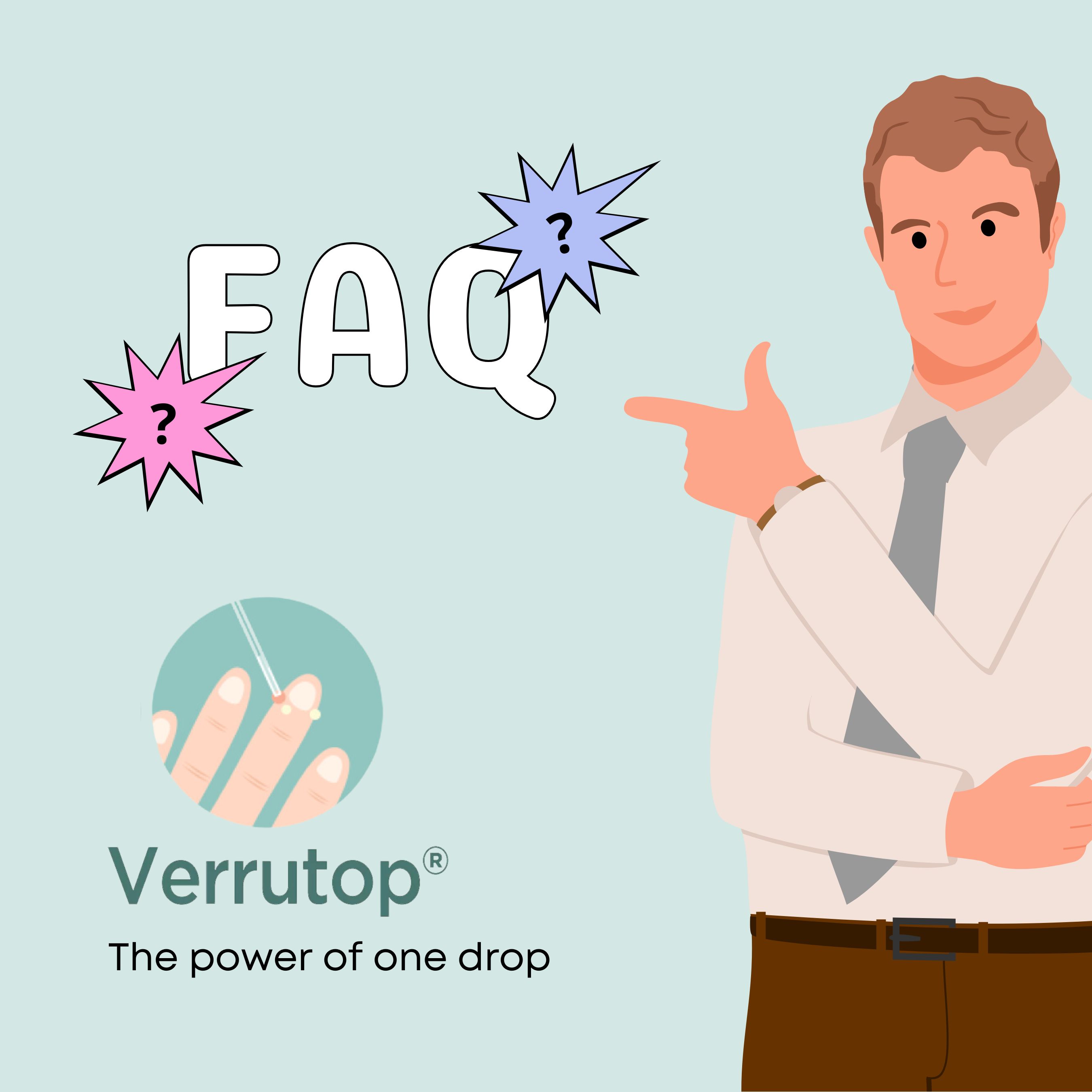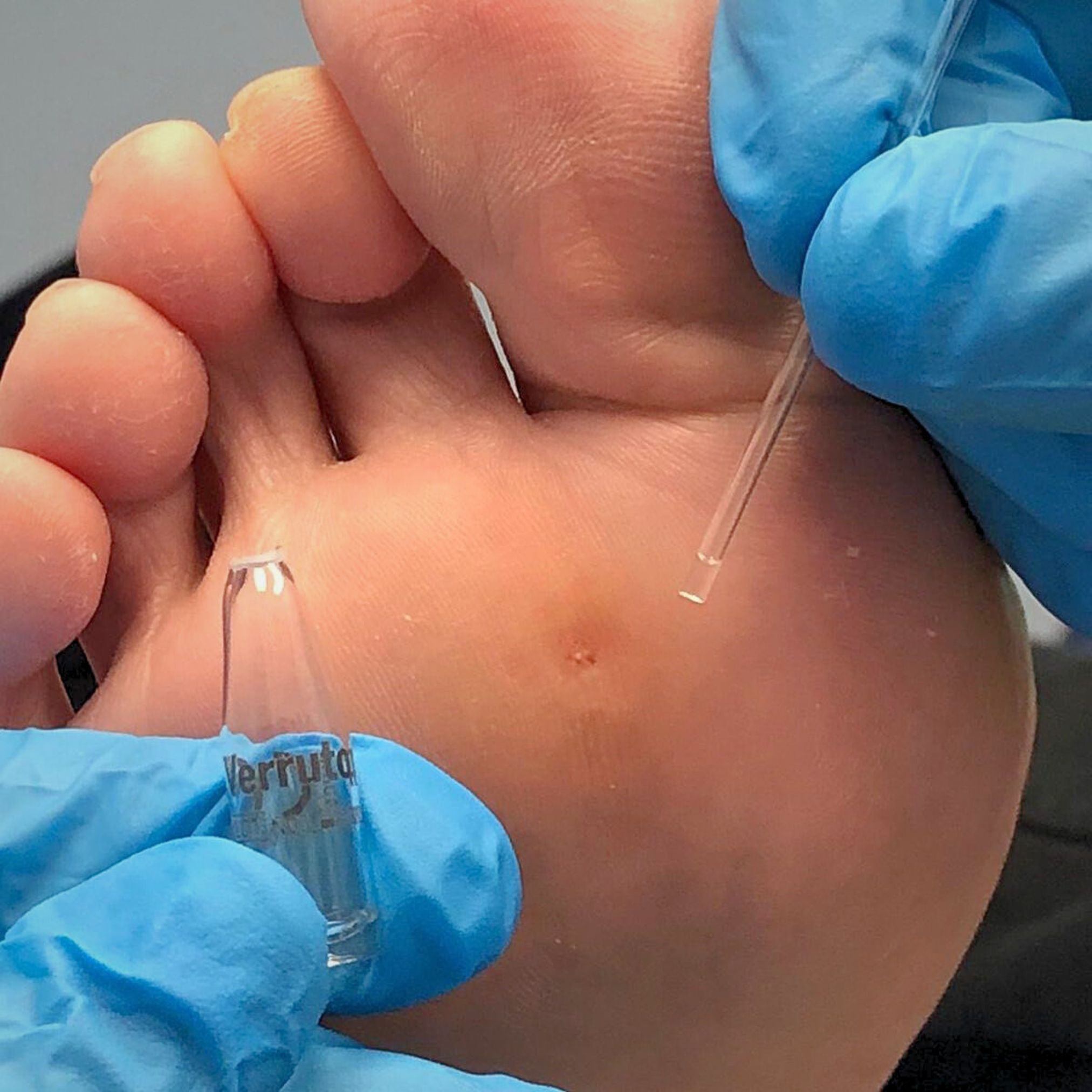Understanding the Difference Between Corn and Verruca: How Verrutop Offers Pain-Free Relief
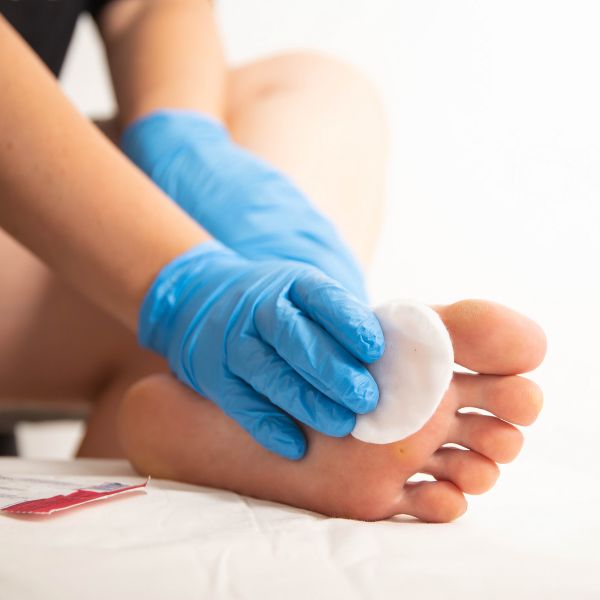
Hey there, foot health pros and podiatrists!
Let's dive into the nitty-gritty of corns and verrucas – those pesky foot problems that keep us on our toes. Ever wondered how to tackle them with ease? Well, buckle up, because we're about to break it down for you. Let's start with understanding what is a corn? and verruca? and the difference between them.
What is a corn on feet?
Corns are smaller and deeper than calluses, featuring a hard center surrounded by swollen skin. They tend to cause discomfort when pressed, particularly when they form on the top of the toes or the outer edge of the small toe. Soft corns, on the other hand, typically develop between the toes.
Corns are generally not considered serious, and there are several remedies you can try at home to eliminate them and prevent their recurrence.
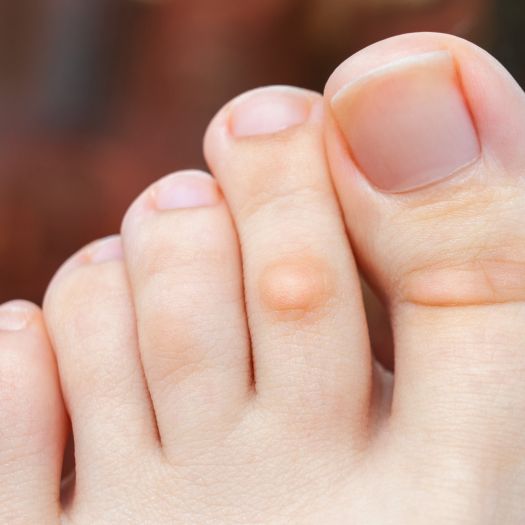

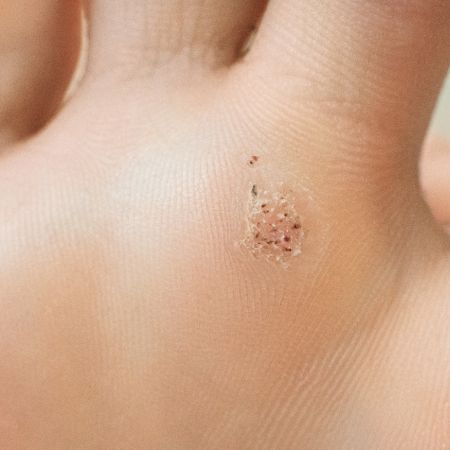

What is a Verruca?
Verrucas are a type of wart that affect the bottom of the feet. They may contain tiny black dots in the center, which are blood clots formed in small blood vessels. Verrucae can be painful, especially when pressure is applied to them. They are caused by human papillomavirus (HPV) virus that spreads easily and can sometimes fuse together to form clusters known as mosaic warts.
Verrucas are often found in kids, teens, and young adults, especially those who share changing rooms. Some people can build immunity to the virus, but most people stay vulnerable, with some being more prone than others.
Corn or Verruca?
A verruca typically causes discomfort when pinched but not when pressed, whereas a corn hurts upon pressure but not upon pinching. Verrucas may be uncomfortable, especially if located on weight-bearing parts of the foot, but they are often not bothersome.
Additionally, most verrucas feature a distinct black dot at the center and may exhibit an irregular cauliflower-like shape.
Key Lifestyle Factors
Age, lifestyle, and skin condition can indicate whether you're prone to corns or verrucas. Corns often affect the elderly due to reduced skin elasticity, as well as individuals with dry skin or uncomfortable footwear.
Meanwhile, verrucas tend to trouble those who frequent communal facilities like swimming pools.


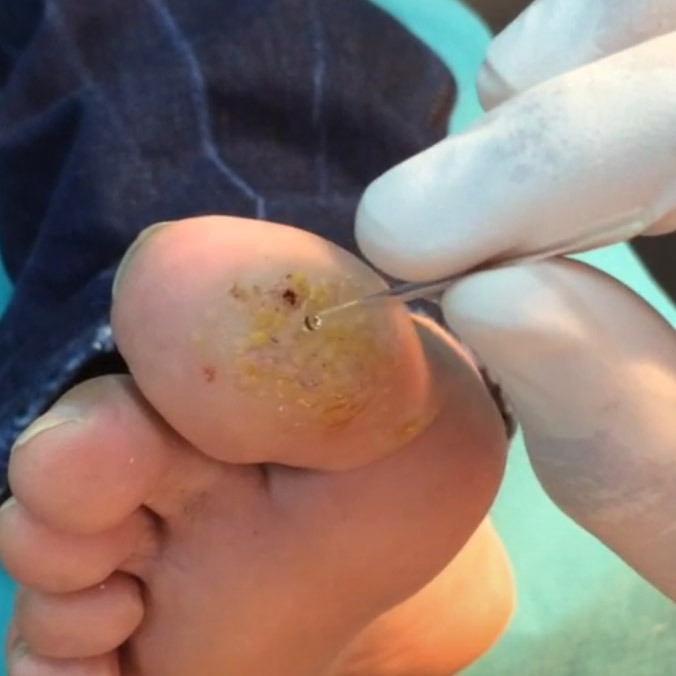

How verrutop can help
And here's the best part – Verrutop's treatment is painless! That means yours patient can kick back and relax during their session, leading to happier faces all around. It's all about ensuring a comfy experience for everyone involved.
With Verrutop, professionals can deliver top-notch care without any hassle. Clients leave feeling satisfied and happy, which is what it's all about, right? Plus, when you've got a product that works like magic, trust and loyalty naturally follow. It's a win-win for everyone!
In addition, our single-use dermal curettes offer a convenient solution for professionals to scrape out verrucas without harming surrounding tissue, simplifying the removal process, particularly for challenging cases, making it easier to get rid of a verruca.
Additionally, if you're seeking Verrutop treatment, book an appointment with your local podiatrist or qualified healthcare professional today to discover more about how Verrutop can help you.


About the Author

Categories











